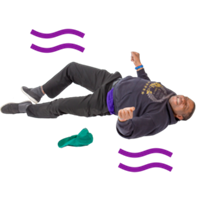Join the home care and reablement focus group
We are looking for Haringey residents with experience of home care and/or reablement services, to help us shape how these services are delivered. Take a look and apply.
Part of: The Community Learning Disability Nursing Service

|
Some people with a learning disability have epilepsy. It is much more common for people with a learning disability to have epilepsy than for everyone else. About 1 in 3 people (32%) who have a mild to moderate learning disability also have epilepsy. |

|
The more severe the learning disability, the more likely that you will also have epilepsy. |

|
Many people will be taking regular medication to manage their epilepsy. For some people, managing epilepsy can be more difficult. |

|
Haringey Learning Disability Team does not have a specialist epilepsy nurse, but but all community nurses in the team know about epilepsy. |

|
Nurses can also help by:
|